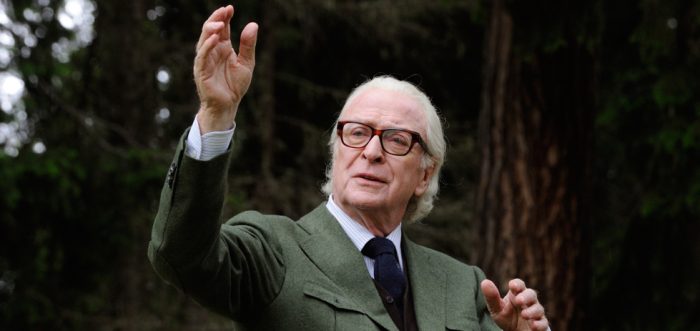
Paolo Sorrentino’s Youth, the follow-up to his Academy Award-winning, breakout hit The Great Beauty, is a decidedly mixed bag of a film, varying wildly in quality on almost a scene-by-scene basis. Sorrentino and DP Luca Bigazzi’s mostly stunning cinematography is occasionally interrupted by some heinous CGI, the film’s impressive cast is peppered with some shoddy supporting turns and the script tends to go from nuanced and moving toward generic platitudes, sometimes in the same sentence. Most of this can be forgiven – and there’s a refreshing looseness to its structure, and occasional weirdness in its content – if it didn’t ultimately feel like such an instance of treading thematic water from Sorrentino’s earlier success. There’s a slight difference – The Great Beauty explored a man’s weariness and ennui entering his twilight years, whereas Youth’s best parts are deeply interested in the more tangible physical decay of the human body, but both paths converge into some pretty common thematic ground which, coupled with some well worn character arcs and revelations, feels a bit too familiar. There’s a lot to enjoy, but for all its visual splendour and occasional idiosyncrasy, this tired familiarity means that the desired emotional pull of the film doesn’t quite resonate.
Fred Ballinger (Michael Caine) is a retired music composer, holidaying at a retreat for the rich and famous in the Swiss Alps with best friend of sixty years film director Mick Boyle (Harvey Keitel), and other guests including artistically tortured method actor Jimmy Tree (Paul Dano) and strangely an obese Maradona (who is neither in the film himself, nor particularly overweight). Ballinger is being asked to come out of retirement to conduct a concert for the Queen, while Mick, still working, is workshopping his latest movie – his “testament” – with a brains trust of young, devoted screenwriters. Meanwhile Fred’s daughter (Rachel Weisz) is visiting her father, and also coming to terms with the break-up of her marriage to Mick’s son, who has left her for pop star Paloma Faith (a self-deprecating cameo from the pop star herself). For all the obvious character motivations and arcs, it feels surprisingly plotless – it never really decides if this Ballinger’s story, or an ensemble piece – leading to barely explained, brilliant scenes like Dano dressed as Adolf Hitler at the posh dining hall, an absurd scene that plays like a mix of Roy Andersson and Separate Tables, among recurring gags about the physical and mental fallibilities of the elderly.
Inescapable in the film’s first hour is the obsession with the physical body, the unspoken anxieties and shame about the physical effects of aging. The old flesh of the resort’s guests is continually juxtaposed with the youthful firmness of the hotel staff (one scene repurposes a sequence from Sorrentino’s idol Fellini to this end, with the bathhouse scenes being just one of the many direct and indirect allusions to 8 1/2) in the fashion of a tone poem of moving and still bodies. A wordless interaction between Caine, naked on a massage table, and his teenage masseuse plays out as both awkward and commonplace; an acknowledgement of the futility of his sexual attraction in that moment, fear of judgement and near-apology for his own physical limitations.
Michael Caine has a brave performance, but not necessarily a good one – on paper it’s a far meatier offering than his grandfatherly cameos in Christopher Nolan films that today’s youth know him for, but save for one (quite effective) turning point/revelation, Sorrentino generally doesn’t require him to do the heavy lifting. The most telling example of this is a midway scene between Caine and Weisz, whereby the latter gives our protagonist a hysterical, verbal excoriation for all his failures as a husband and father, a monologue shot entirely in close-up on Weisz. The hardest part about acting is reacting, and Caine is let off the hook in the scene that is meant to tell us most about his character. Ostensibly an attempt at late career acclaim, more enjoyable is Harvey Keitel’s Mick as a wise-cracking romantic under a cynical veneer. After a career of appearing in obscure European arthouse films from eclectic directors like Ettore Scola, Lina Wertmuller and Theo Angelopouos, it feels that Keitel knows he has a lot less to prove, and his lighter approach to the role at hand ultimately imbues more character than Caine’s stoic, tortured-genius routine.
But even Keitel is weighed down by the leaden script towards the end with its grand statements on Life and Art; the good work done by Sorrentino’s visual language in the first half almost erased by the Lifetime movie quotes of the second, showing above all that Sorrentino is a far more talented director than writer.
Around the Staff:
| Luke Goodsell |
